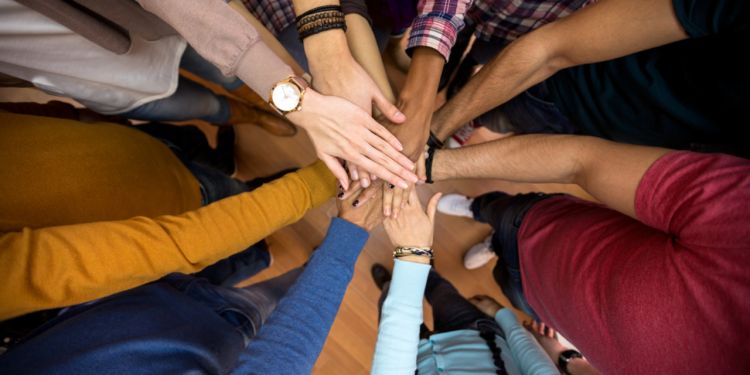
Türkiye is a country rich in diversity, with a history of welcoming various cultures. In this article, we will look into Türkiye's multicultural background, its people, and government efforts in promoting diversity and inclusion. We will also try to provide an honest overview of the current situation for gender and LGBTQ rights, as well as the inclusion of people with disabilities.
Understanding Türkiye's cultural context
Historically known as Anatolia and later as the Ottoman Empire, Türkiye has been a melting pot of civilizations for millennia. This land has seen the influences of the Greeks, Romans, Byzantines, and Ottomans, each leaving indelible marks on its cultural and architectural landscape. The fall of the Ottoman Empire and the birth of modern Türkiye under Mustafa Kemal Atatürk brought significant changes, yet the diverse heritage remained ingrained in the country's fabric.
The Ottoman Empire, in particular, played a pivotal role in shaping the diversity of present-day Türkiye. As a vast and multicultural empire, it encompassed a wide array of peoples and cultures, including Turks, Greeks, Armenians, Kurds, Arabs, and many others. This blend of ethnicities and traditions fostered a rich cultural mosaic, which is still evident in Türkiye's cuisine, music, art, and daily life. The legacy of the Ottoman tolerance towards different ethnicities and religions is a cornerstone of Türkiye's diverse identity.
Current demographic situation in Türkiye
Today, Türkiye's demographic landscape mirrors its rich history. The majority of the population is Turkish, with Kurds forming the largest ethnic minority. These two groups, along with numerous other ethnicities like the Armenians, Arabs, Greeks, and Georgians, contribute to the country's cultural diversity. Each group brings its own traditions, language, and customs.
Linguistically, while Turkish is the official language, the country is home to a variety of other languages spoken by its diverse ethnic communities. Kurdish, Arabic, Zaza, and Laz are among the other languages spoken in Türkiye, each adding to the nation's linguistic tapestry.
Religious diversity in Türkiye
Religion in Türkiye is predominantly Islam, with the majority being Sunni Muslims. However, the country has a secular constitution, and there is a presence of other religious communities, including Christian and Jewish minorities. This religious diversity is a result of Türkiye's historical role as a bridge between the East and West, where different faiths have coexisted for centuries.
Regional differences within Türkiye further highlight its diversity. The western part of Türkiye, especially the coastal regions and major cities like Istanbul and Izmir, has a more modern and Western-oriented lifestyle. Here, you will find the largest number of expats. Besides, most tourists coming to Turkey for a visit generally choose these regions as their destination.
In contrast, the eastern regions, particularly in the Kurdish-dominated southeast, retain more traditional and conservative cultural practices. The Black Sea region has its unique customs and linguistic heritage, while the Mediterranean and Aegean coasts are known for their distinct cuisine and relaxed lifestyle.
Inclusion of people with disabilities in Türkiye
Türkiye has taken steps to align its legislation with international standards for disability rights. The country ratified the United Nations Convention on the Rights of Persons with Disabilities (CRPD) in 2009, committing to uphold the rights and dignity of people with disabilities.
The Turkish Constitution guarantees equality and prohibits discrimination, including on the basis of disability. Additionally, various laws and regulations specifically address the rights and needs of people with disabilities. These include laws on employment, education, accessibility, and social services.
One notable legislation is the Law on Disabled Persons, which provides a framework for the protection and integration of people with disabilities into society. This law covers a range of areas, including rehabilitation, education, employment, health care, and accessibility.
In the employment sector, Türkiye has implemented quotas to encourage the hiring of people with disabilities in both public and private sectors. Companies with a certain number of employees are required to employ a specific percentage of workers with disabilities.
However, the implementation of these quotas and the actual employment rates for people with disabilities still face challenges. Barriers include societal attitudes, lack of accessibility in workplaces, and limited opportunities for vocational training.
In terms of physical accessibility, urban areas in Türkiye have been undergoing gradual improvements. This includes the installation of ramps, lifts, and accessible public transport facilities. However, the level of accessibility varies significantly across regions and cities, with some areas lagging behind in providing adequate facilities for people with disabilities.
The Turkish education system offers special education services for children with disabilities, aiming to provide inclusive and accessible education. There are both special education schools and inclusive programs in mainstream schools. However, the quality and availability of these services can vary, and there is an ongoing need for improvement in terms of resources, teacher training, and curriculum adaptation.
Societal attitudes towards disability in Türkiye are mixed. While there is increasing awareness and acceptance, stereotypes and prejudices still exist. Families often play a crucial role in the support and advocacy for people with disabilities, and there are numerous NGOs and disability rights organizations working to improve inclusion and rights.
These organizations play a vital role in advocating for policy changes, raising public awareness, and providing support and resources for people with disabilities and their families.
Gender and LGBTQI+ inclusion in Türkiye
Türkiye's approach to gender and LGBTQI+ inclusion is a complex topic, marked by a blend of progressive legislation, societal norms, and ongoing challenges.
Legally, Türkiye does not criminalize homosexuality, which sets it apart from several neighboring countries. However, there are no laws explicitly protecting LGBTQI+ individuals from discrimination or hate crimes. Same-sex marriage or civil unions are not legally recognized, and same-sex couples do not have the same legal protections as heterosexual couples.
The absence of specific anti-discrimination laws leaves the LGBTQI+ community vulnerable to various forms of discrimination, both in public and private spheres. Pride events in Türkiye, particularly in Istanbul, have faced increasing restrictions and police intervention in recent years, reflecting a challenging environment for public expressions of LGBTQI+ identity.
Womens' rights in Türkiye
Gender equality in Türkiye is an ongoing struggle, with significant disparities in areas like employment, education, and political representation. The Turkish government has made efforts to improve the situation, such as ratifying the Istanbul Convention, aimed at preventing and combating violence against women and domestic violence.
However, in 2021, Türkiye withdrew from the convention, a move that raised concerns about the country's commitment to addressing gender-based violence.
Despite these challenges, there are active women's rights organizations in Türkiye that work to promote gender equality, combat violence against women, and advocate for women's participation in political and economic life.
We do our best to provide accurate and up to date information. However, if you have noticed any inaccuracies in this article, please let us know in the comments section below.












Comments